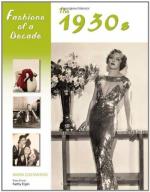|
This section contains 3,004 words (approx. 11 pages at 300 words per page) |

|
The Broadcast Center.
The 1930s were truly the golden age of radio. Radio had been a nationwide phenomenon during the 1920s, broadcasting jazz; it was a fixture of the 1940s, connecting the home front to the war; but during the Depression era of the 1930s radio was something more than an entertainment or communications medium. It was a source of solace, of relief from everyday troubles; a means of escaping hardship, if only for a few minutes. It also embodied the political tensions of the decade. President Franklin D. Roosevelt reassured the nation by radio during his "fireside chats"; H. V. Kaltenborn's broadcasts from Munich in 1938 focused the nation's anxieties on Europe. During the 1930s radio was at the center of American culture.
The Depression.
The Depression affected the radio business much as it did other industries. Large radio manufacturers and...
|
This section contains 3,004 words (approx. 11 pages at 300 words per page) |

|




